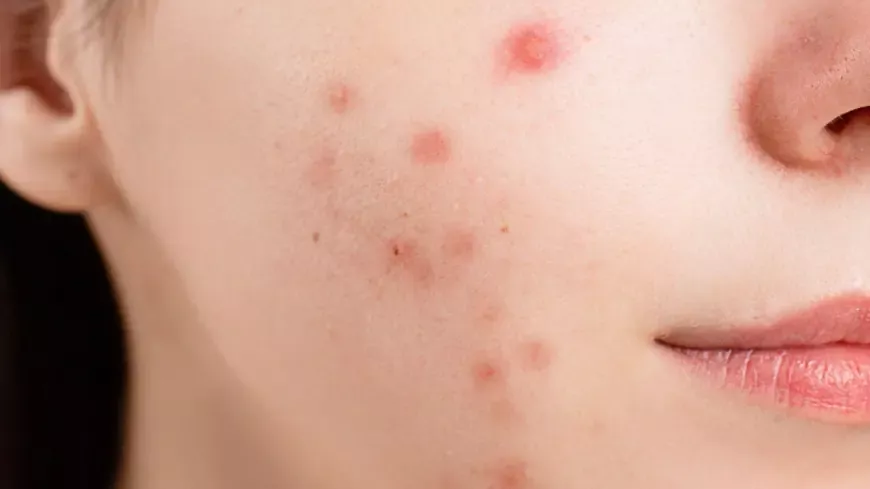Achieve Flawless Skin: Acne Treatment Tips You Need to Know
Best Acne Treatment in Dubai UAE & Abu Dhabi can be done with lasers, injections, light therapy, and chemical peels at the Royal Clinic. Call now to make an appointment.

Acne is a common skin condition that affects people of all ages, but especially teenagers and young adults. It can be frustrating, leading to low self-esteem and a constant search for solutions. Fortunately, there are numerous ways to treat acne and improve skin health. In this article, we’ll explore effective Acne Treatment in Dubai tips to help you achieve clearer, healthier, and more radiant skin.
Understanding Acne: What Causes It?
Before diving into treatment options, it's important to understand what acne is and what causes it. Acne occurs when hair follicles become clogged with oil, dead skin cells, and sometimes bacteria. This clogging leads to inflammation, resulting in pimples, blackheads, whiteheads, and cysts. The main factors contributing to acne include:
- Hormonal changes: Puberty, pregnancy, and the use of birth control can increase oil production, leading to clogged pores.
- Excess oil production: The sebaceous glands in the skin produce excess oil, which can clog pores and cause acne.
- Bacterial growth: The bacterium Propionibacterium acnes thrives in clogged pores and contributes to inflammation.
- Poor diet and lifestyle: A diet high in sugar, dairy, and processed foods can worsen acne. Stress, lack of sleep, and smoking can also trigger breakouts.
- Genetics: Family history can play a significant role in whether someone develops acne.
Understanding the root causes of acne can help you tailor your treatment approach for better results.
Effective Skincare Routine for Acne-Prone Skin:
A proper skincare routine is essential when dealing with acne. Here are the basic steps for an acne-fighting skincare regimen:
Cleanse Gently:
Start by cleansing your skin twice a day with a mild, non-comedogenic cleanser. Avoid harsh scrubbing, as it can irritate the skin and worsen acne. Look for products that contain ingredients like salicylic acid or benzoyl peroxide, which help to unclog pores and reduce bacteria.
Exfoliate Wisely:
Exfoliating can help remove dead skin cells that can clog pores. However, over-exfoliation can damage the skin and cause inflammation. Use an exfoliator with gentle exfoliating agents such as alpha hydroxy acids (AHAs) or beta hydroxy acids (BHAs). Aim to exfoliate 2-3 times a week.
Moisturize Daily:
Even acne-prone skin needs moisture. Look for a lightweight, oil-free moisturizer that hydrates the skin without clogging pores. Some moisturizers contain added acne-fighting ingredients like niacinamide, which reduces inflammation.
Apply Acne Treatments:
Use targeted treatments like benzoyl peroxide, salicylic acid, or sulfur to treat breakouts. These active ingredients reduce oil production, unclog pores, and fight the bacteria responsible for acne. Always apply treatments directly onto the affected area.
Use Sunscreen:
Using sunscreen daily is essential for all skin types, but especially for acne-prone skin. Some acne treatments can increase your skin's sensitivity to the sun, making it more prone to sunburn and scarring. Choose a non-comedogenic sunscreen with broad-spectrum protection (SPF 30 or higher).
Top Acne Treatment Options:
If over-the-counter products aren’t working for you, there are several professional treatments that can help manage and clear acne more effectively. Consider consulting a dermatologist for the following options:
Topical Retinoids:
Retinoids, such as tretinoin, are derived from vitamin A and are widely used to treat acne. They help prevent clogged pores, reduce inflammation, and improve the overall appearance of the skin. Retinoids can be applied as creams, gels, or lotions and are effective for both mild and moderate acne.
Oral Medications:
For more severe cases of acne, a dermatologist may prescribe oral medications. Common options include:
- Antibiotics: These help reduce the bacteria that contribute to acne and reduce inflammation.
- Hormonal treatments: Birth control pills or anti-androgen medications can help balance hormones that trigger acne.
- Isotretinoin (Accutane): For severe, cystic acne, isotretinoin is a powerful oral medication that shrinks the sebaceous glands and prevents excessive oil production.
Laser Treatments:
Laser treatments, such as light or heat therapy, can help reduce acne-causing bacteria, decrease oil production, and improve skin texture. Laser treatments are a great option for those with moderate to severe acne that hasn't responded to other treatments.
Chemical Peels:
Chemical peels involve applying a chemical solution to the skin, which exfoliates the top layer and promotes new skin cell growth. This treatment can reduce acne lesions, scars, and overall skin texture. Chemical peels are best for individuals with persistent acne or acne scars.
Lifestyle Changes to Support Acne Treatment:
In addition to skincare and professional treatments, lifestyle changes can also help manage acne. Here are some tips to complement your acne treatment:
1. Maintain a Healthy Diet:
What you eat can affect your skin's health. A diet rich in fruits, vegetables, whole grains, and lean proteins can promote clear skin. Avoiding excessive sugar, refined carbohydrates, and dairy products can help reduce acne flare-ups.
2. Stay Hydrated:
Drinking plenty of water helps keep your skin hydrated and flushes out toxins that can contribute to acne. Aim to drink at least 8 glasses of water a day for optimal skin health.
3. Manage Stress:
Stress is a known trigger for acne flare-ups. Practicing relaxation techniques such as meditation, yoga, or deep breathing can help reduce stress levels and improve skin clarity.
4. Get Enough Sleep:
Adequate sleep is essential for skin repair and overall health. Aim for 7-9 hours of sleep each night to allow your body to regenerate and reduce the likelihood of stress-induced acne.
5. Avoid Touching Your Face:
Touching your face can transfer dirt, oil, and bacteria from your hands to your skin, leading to more breakouts. Make a habit of keeping your hands away from your face and avoid picking or popping pimples, which can lead to scarring.
When to See a Dermatologist:
While mild acne can often be managed with over-the-counter treatments, more severe cases may require professional intervention. If you experience the following, it’s time to consult a dermatologist:
- Persistent acne that doesn’t improve with over-the-counter treatments.
- Acne that causes pain, swelling, or deep cysts.
- Acne scars or discoloration.
- Emotional distress or a significant impact on your self-esteem.
A dermatologist can assess your skin, recommend personalized treatments, and guide you through the best options for your skin type and acne severity.
Conclusion:
Achieving flawless, acne-free skin requires patience, consistency, and a tailored approach. By understanding the causes of acne, maintaining a proper skincare routine, and incorporating effective treatments, you can regain control over your skin’s health. Remember, lifestyle changes like a balanced diet, proper hydration, and stress management also play a crucial role in supporting your acne treatment. With the right approach, clear and radiant skin is within reach!
What's Your Reaction?
 Like
0
Like
0
 Dislike
0
Dislike
0
 Love
0
Love
0
 Funny
0
Funny
0
 Angry
0
Angry
0
 Sad
0
Sad
0
 Wow
0
Wow
0



















































